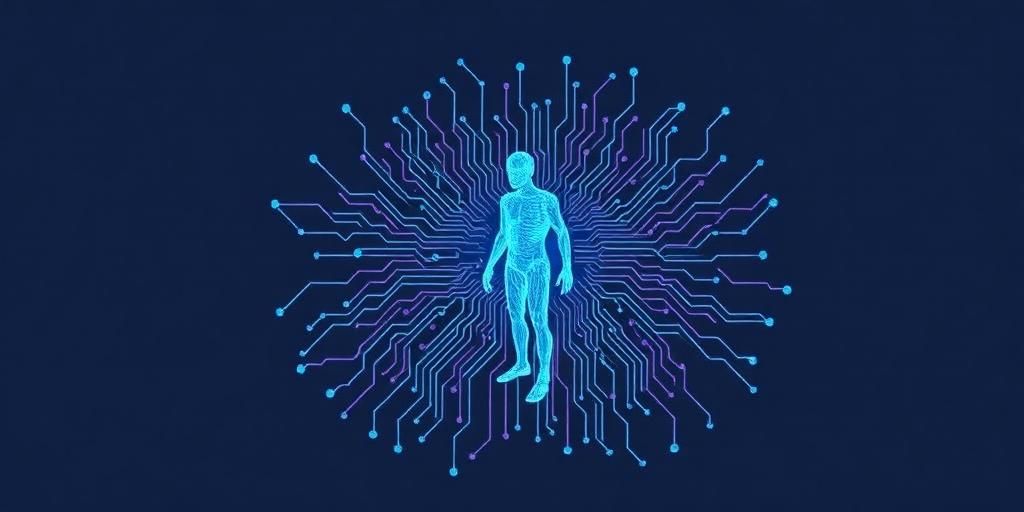Ethical Considerations of AI in Personal Life (2025)
Artificial intelligence is rapidly weaving its way into the fabric of our daily routines. From smart home devices to personalized recommendations, AI offers convenience and efficiency. However, this increasing integration raises significant ethical questions that demand careful consideration. This article explores the ethical landscape of AI in personal life, examining the challenges and potential solutions as we move further into 2025.
Data Privacy and Security
One of the most pressing concerns is the vast amount of personal data collected and processed by AI systems. Smart devices, wearable technology, and online platforms gather information about our habits, preferences, and even our emotions. This data is often stored and analyzed to improve AI performance and personalize user experiences.
- The Risk of Data Breaches: The accumulation of sensitive personal data makes AI systems attractive targets for cyberattacks. A data breach could expose individuals to identity theft, financial fraud, and other malicious activities.
- Lack of Transparency: Many AI systems operate as “black boxes,” making it difficult for users to understand how their data is being used. This lack of transparency raises concerns about potential bias and discrimination.
- Data Ownership and Control: Individuals often have limited control over their personal data collected by AI systems. This raises questions about who owns the data and who has the right to access and use it.
Bias and Discrimination
AI algorithms are trained on data, and if that data reflects existing societal biases, the AI system will perpetuate and even amplify those biases. This can lead to discriminatory outcomes in various aspects of personal life.
- Algorithmic Bias in Recommendations: AI-powered recommendation systems may promote certain products, services, or content based on biased data, reinforcing stereotypes and limiting individual choices.
- Discrimination in Healthcare: AI algorithms used in healthcare may misdiagnose or mistreat patients from certain demographic groups due to biases in the training data.
- Fairness and Equity: Ensuring fairness and equity in AI systems requires careful attention to data collection, algorithm design, and ongoing monitoring.
Autonomy and Decision-Making
As AI systems become more sophisticated, they are increasingly capable of making autonomous decisions that affect our lives. This raises ethical questions about the appropriate level of autonomy for AI and the potential impact on human agency.
- Loss of Control: Over-reliance on AI decision-making can lead to a loss of control over our lives. Individuals may become overly dependent on AI systems, relinquishing their ability to make independent choices.
- Erosion of Human Skills: The automation of tasks by AI can lead to a decline in human skills and capabilities. Individuals may lose the ability to perform tasks that are now handled by AI systems.
- Responsibility and Accountability: When AI systems make mistakes or cause harm, it can be difficult to determine who is responsible. Establishing clear lines of responsibility and accountability is essential.
Social Impact and Well-being
The widespread adoption of AI in personal life has broader social implications that need to be considered. These include the potential impact on employment, social relationships, and overall well-being.
- Job Displacement: AI-powered automation may lead to job displacement in various industries, creating economic hardship and social unrest.
- Social Isolation: Over-reliance on AI-powered communication and entertainment can lead to social isolation and a decline in face-to-face interactions.
- Mental Health: The constant stream of information and stimulation provided by AI systems can contribute to stress, anxiety, and other mental health problems.
Addressing the Ethical Challenges
To mitigate the ethical risks of AI in personal life, it is essential to adopt a multi-faceted approach that involves:
- Developing Ethical Guidelines and Regulations: Governments and industry organizations should establish clear ethical guidelines and regulations for the development and deployment of AI systems.
- Promoting Transparency and Explainability: AI systems should be designed to be transparent and explainable, allowing users to understand how they work and how their data is being used.
- Ensuring Data Privacy and Security: Robust data privacy and security measures should be implemented to protect personal data from unauthorized access and misuse.
- Addressing Bias and Discrimination: AI algorithms should be carefully designed and tested to avoid perpetuating or amplifying existing societal biases.
- Promoting Human Oversight and Control: Humans should retain oversight and control over AI decision-making, ensuring that AI systems are used in a responsible and ethical manner.
- Educating the Public: Public education and awareness campaigns should be conducted to inform individuals about the ethical implications of AI and empower them to make informed choices.
Conclusion
As AI continues to evolve and become more deeply integrated into our personal lives, it is crucial to address the ethical challenges it presents. By prioritizing data privacy, fairness, transparency, and human oversight, we can harness the benefits of AI while mitigating its risks and ensuring a future where technology serves humanity in a responsible and ethical manner.
Long-tail Keywords:
- AI ethics in daily routines
- AI bias in personal devices
- Data privacy with smart technology
- AI and mental health 2025
